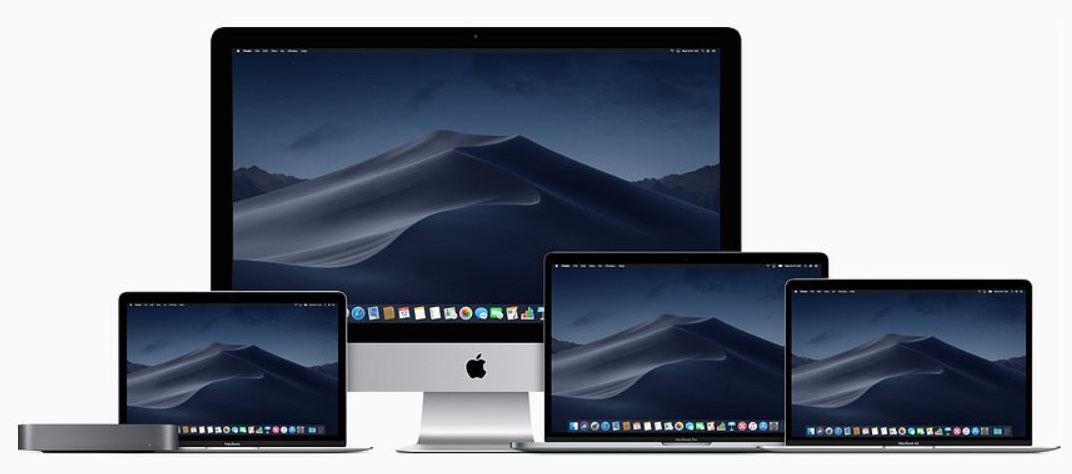Intel Confirms Apple Macs Will Switch to Arm CPUs by 2020, Says Report
Intel officials and developers have reportedly told Axios that Apple is preparing to launch Arm-based Macbooks next year. The report follows a story from Bloomberg Wednesday saying that Apple plans on combining iOS and macOS applications by 2021.
Rumors have existed for a few years that Apple would be switching its MacBook laptops to its own Arm processors. However, previously, Arm chips did not have quite the necessary performance to run more full fledged desktop applications.
This week's report from Bloomberg reiterated Macs running on Arm may arrive in 2020. Axios' report seemingly confirmed the claim, citing "developers and Intel officials."
With the release of the iPad Pro in 2015, Apple showed that its Arm chips could now handle “PC-class” applications. Since 2015, Apple’s chips have become ever more powerful, increasing their performance in much lager steps with each generation compared to Intel’s CPU generations.
Apple has traditionally preferred having more control over the core components of its devices, if it could afford it, so it makes sense that Apple would eventually want MacBooks to be powered by the same (or upgraded) chips powering iOS devices.
One of the missing ingredients in this strategy used to be that Apple was still dependent on others, such as Imagination, for its GPUs. However, two years ago, Apple also announced that it would stop licensing Imagination’s GPU technology and would soon use its own.
Porting x86 Mac Apps to Arm
The final piece of the puzzle would be transitioning x86 macOS programs to the Arm instruction set architecture. According to Bloomberg, Apple is working on a project called “Marzipan” that would allow developers to code their app once and have it work on both iOS devices and macOS computers. Bloomberg said Apple will release the first version of the necessary software kit in June at its annual developer conference.
Get Tom's Hardware's best news and in-depth reviews, straight to your inbox.
At first, Apple will allow developers to port only iPad apps to Macs, presumably because iPad apps are closer to macOS apps in both functionality and user experience. Initially, the developers will still have to submit two different versions of their apps that have optimized user interface for each platform, but the underlying code will remain the same, the report said.
In 2020, Apple’s Marzipan software kit is also expected to allow developers to port their iPhone apps to Macs. Apple engineers have found it challenging to port applications designed for a small screen to the desktop, which is why it will take longer to make this transition.
By 2021, third-party app developers will be able to create a “single binary” that will work across iOS devices and macOS computers. Presumably, they’d still have different user interfaces on each form factor, but they’ll either be more fluid to adapt to the screen size or developers will have to contain different user interfaces within each binary.
Arm Chips Are Ready for the PC Market
Even though Apple’s custom processors have led the Arm CPU pack for many years, it’s not just Apple’s chips that have started to threaten Intel’s dominance. Qualcomm recently announced the Snapdragon 8cx platform for mainstream notebooks aimed straight at Intel’s Core i5 (U-series).
Arm and its partners also made big announcements for the server market this week, which they intend to target with the significantly more powerful Neoverse N1 and other variations of that chip.
Amazon, the largest public cloud services provider has even started to design its own Arm CPU, which will likely also be upgraded to an N1-based processor soon, too.
Furthermore, Microsoft has made continuous improvements to Windows support for Arm chips over the past few years, and its upcoming architecture-agnostic Lite OS is more proof that the company is serious about having more Arm-powered laptops on the market.
Even Google, which has historically lacked Arm support in Chrome OS despite the OS being architecture-agnostic since day one, seems to be working on bringing the Snapdragon platform to some Chromebooks in the second half of this year.
However, only Snapdragon 845 (not even the Snapdragon 855) will be supported initially, as the company wants to bring cheaper Chromebooks to market. Another issue seems to be that Qualcomm would rather put the Snapdragon 8cx in laptops that cost $500 or more, likely because that would mean the OEMs would be able to afford to pay a higher price for the 8cx. More expensive/premium Chromebooks are also on the roadmap, so the 8cx may arrive next year.
Want to comment on this story? Let us know what you think in the Tom's Hardware Forums.
Lucian Armasu is a Contributing Writer for Tom's Hardware US. He covers software news and the issues surrounding privacy and security.
